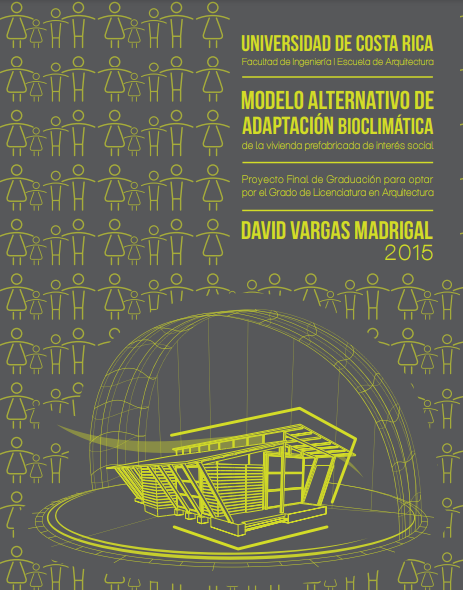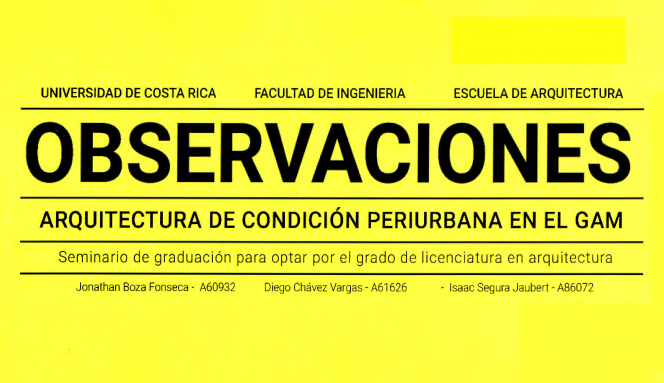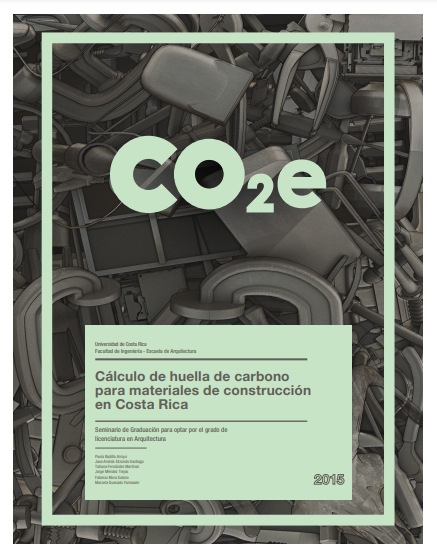Summary
The design of the prefabricated houses of social interest in Costa Rica, it is not made from the bioclimatic conditions of the area of life in which it is constructed, therefore, presents deficiencies at the level of comfort that does not have strategies passive that mitigate the impact of the environment conditions on this. The present work, the end of the graduation, increases the visibility of the current situation of a prefabricated housing of social interest, which is designed without a prior analysis of the local conditions, this directly influences the comfort perceived by the family from everyday life inhabits the dwelling. The active participation of this family throughout the process of analysis includes the variable of everyday life in the research, thus enriching the process and allowing the integral approach of the housing situation, not only from the quantitative data, but from the perspective of daily use of the space and the influence of the climate on the inhabitants of the same. The physical boundaries takes place in a Volcano of Buenos Aires Puntarenas, site belonging to the Humid Tropical Forest according to the classification of areas of the life of L. Holdrige, so that the analysis of the conditions in the different levels of this zone is critical in research. At the end, there is the record of the methodological tools used to document the climate information and the everyday life of the users and it is proposed from the findings of the analysis, an adaptation to the current home in order to raise the comfort levels present, this, starting with the patterns generated by the strategies passive. It also develops the design of a model that optimally responds to the needs of the climatic zone of life, using the same materiality and the amount of square feet, showing the possibilities of innovation and the optimal design can be developed for this type of housing to increase their comfort levels and provide quality of life to the people who inhabit it.



